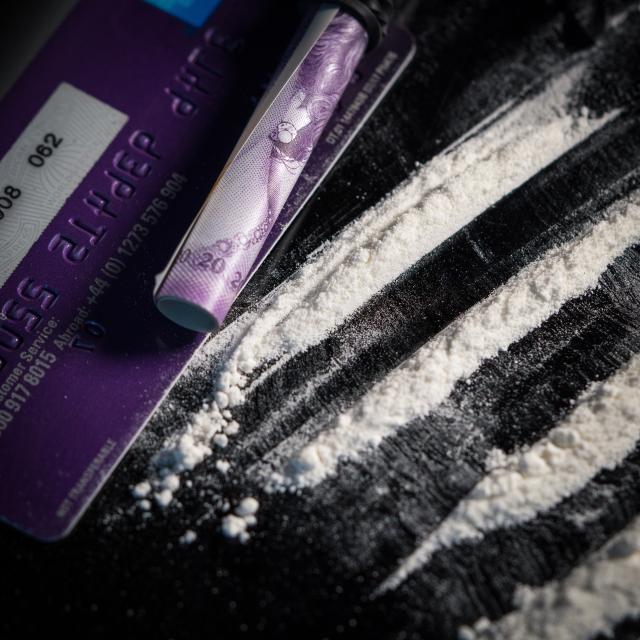The 22nd report from the National Wastewater Drug Monitoring Program was released on Thursday 11 July, giving a recent snapshot of Australia’s drug use.
The report, put together by the Australian Criminal Intelligence Commission (ACIC) every quarter, tested wastewater from 56 sites in capital city and regional sites around the country over seven days in December 2023, representing 14.1 million people 55 per cent of the population.
Further sampling only in capital cities was undertaken in February 2024.
ACIC CEO Heather Cook said the data presents a stark reminder of the persistent and evolving challenge of drug use and its implications for public health and safety.
“As we continue to combat this issue, it is crucial to understand underlying factors contributing to these trends and to develop targeted strategies to address them,” she said.
“Wastewater analysis permits the ACIC to engage meaningfully with international agencies on transnational drug threats, working alongside our domestic law enforcement partners, certain investigations now integrate targeted, high-intensity wastewater analysis to gauge the impact of law enforcement actions,”
“Additionally, wastewater analysis is increasingly used as a key element in drug ‘early warning’ systems, enhancing the ability to anticipate and respond to emerging drug threats.”
A number of record highs for drug consumption were exceeded in December 2023 sampling, with cocaine consumption in both capital cities and regional areas, methylamphetamine consumption in capital cities and nicotine consumption in regional areas hitting their highest recorded levels.
The average consumption of methylamphetamine, cocaine, MDMA, MDA, ketamine, alcohol, and nicotine all increased in capital cities and regional areas, while cannabis was the only substance tested for that decreased across the board.
The average consumption of alcohol, cocaine, MDMA, MDA, heroin and ketamine in capital cities exceeded regional areas while nicotine, methylamphetamine, oxycodone, fentanyl and cannabis consumption in regional areas was higher than in capital cities.
The report also compared data with the 2023 Sewage Core Group Europe (SCORE) findings, which covers 112 cities across 34 countries in Europe, Asia, North and South America and Oceania:
Australia was ranked fourth out of the 34 nations for the use of illicit stimulants, including ranking second for methylamphetamine (from 30 countries), 15th for MDMA (from 33) and 20th for cocaine (from 32). Australia was also ranked third out of 20 countries for cannabis consumption.
A recent survey by the Alcohol and Drug Foundation conducted in May 2023 also recently found 64 per cent of the 367 people in the survey (out of 3604 total) who had concerns regarding a friend or relative’s alcohol or other drug use didn’t feel as though they knew how to provide support.
The Alcohol and Drug Foundation’s CEO Dr Erin Lalor AM said the survey findings reaffirm the critical need to reduce the barriers that prevent family and friends seeking information and support for themselves, or a relative or friend.
“Knowing that a family member or friend is experiencing issues with alcohol or other drugs, can be incredibly tough, and given that a major source of support for people experiencing alcohol or other drug harms are family and friends, it’s crucial people within these support networks have better awareness and access to help and information for both themselves and those they’re worried about,” Dr Lalor said.
“This survey also highlights that many concerned relatives or friends are waiting long periods of time before seeking help. It’s vital that we increase awareness about the benefits of accessing help and support early,”
“Knowing how to support someone can be overwhelming. By seeking information and support for yourself early on, and then starting a conversation with your friend or family member about where to find information or help, and how to minimise the risk of harm, you can help encourage healthier outcomes.”
Nearly 60 per cent didn’t know how to hold a conversation with someone, 45 per cent didn’t know where they could suggest someone find information or support about their alcohol or other drug use while 46 per cent didn’t know how to find help for themselves.
This is despite 78 per cent reporting that they understood the importance of seeking support and information early, with 58 per cent saying they did not seek it at all.
Barriers that made it difficult for people to seek help included not knowing what to ask or where to go, feelings of a lack of privacy, worries about the thoughts of others or their relative/ friend and feelings of embarrassment.
Dr Lalor said she was incredibly saddened to see 12 per cent of those who had considered seeking help for a friend or family member were too embarrassed to ask, while 16 per cent were worried what people would think of them or their relative/friend.
“People should feel no shame about reaching out for help and support. We need stronger investments in initiatives to reduce stigma and encourage greater rates of help-seeking,” she said.
“For people who do experience issues with their alcohol or other drug use, often this has more to do with the other challenges they might be facing. In these situations, our role is to help them with the support they need to be healthy and well,”
“Health-based approaches to drug use are also needed and benefit the whole community as they can help to reduce stigma, see more people reaching out for help and support, and reduce drug-related harms such as deaths and disease.”
For free and confidential advice about alcohol and other drug treatment services call the National Alcohol and Other Drug Hotline on 1800 250 015.
For information about drug and alcohol addiction treatment or support, go to the Turning Point website.







